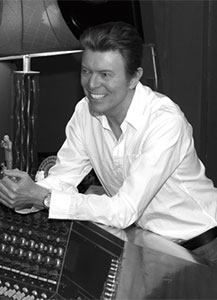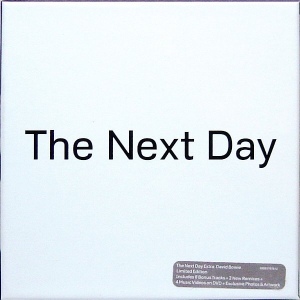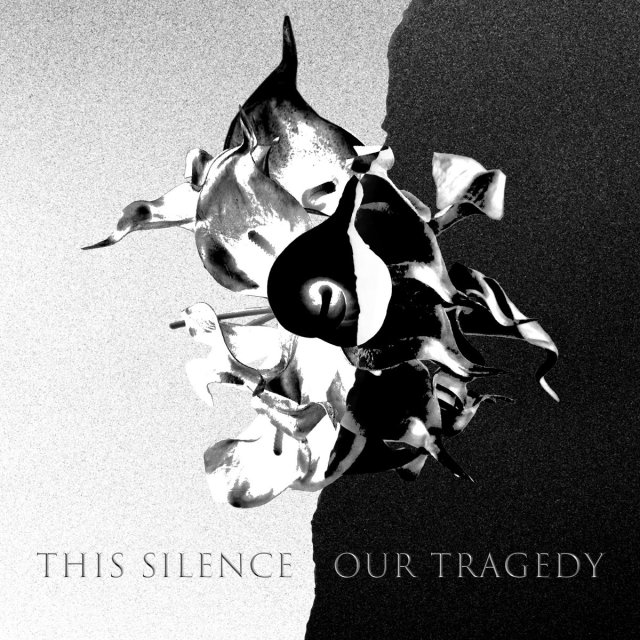2014
It was exactly as I suspected it. Just in time for the gift giving season, and only eight months after the release of “The Next Day” in 14/17 track configurations came a 24 track version. “The Next Day Extra.” It was a boxed, 2xCD version with the discrete 14 track album on the first disc, and all of the extra 10 tracks that were in some cases available on the Japanese CD only [that sort of thing really irks me]. This was worth the relatively brief wait, and I’d read that the placement of the three extra tracks [“So She,” “Plan,” “I’ll Take You There”] following the conclusive “Heat” on the album proper was a jarring inclusion. So I was happy to see the album given its proper space on disc one with the extras, all of them, on disc two.
The album played like all of the best aspects of “Heathen” or “Reality” given a suitable polish with nary a dead spot on it. The title track was a bristling rock number with fascinating lyrics that presaged the dark tone of the album. Bowie sang like he was on fire here; twisting lyrical knives in still undead foes. It recalled material like the title track to “Reality” but it was certainly stronger and more vehement in its intensity. It was as if after a decade layoff, that Bowie was not hedging any bets. Instead, he was laying it out on the line this time.
An immediate favorite was “Dirty Boys” with its wheezing, filthy, baritone sax. While I suspect that Tom Waits was the conceptual influence here, the resulting track more strongly brings to mind Pere Ubu for these ears, and that was something that I found thrilling. Pere Ubu were a band who weren’t capable of boring me, and it was rewarding to hear Bowie moving in the same direction, knowing well that for at least a decade, he was capable of little else.
The second single, “The Stars [Are Out Tonight]” was one of the lighter moments on the album, and it made a good choice for targeting airplay. It certainly would have sounded both good and at home on the radio. Does anyone know if it ever actually got any airplay? I’m disconnected from that phenomenon. The feeling of dread returned on “Love Is Lost,” and so did Bowie tropes like varispeed vocals and Harmonized drums.
The first single, “Where Are We Now” remained a reflective, almost jazzy excursion into multi-leveled nostalgia. The song’s vivacious climax retained its power to dispel the gray clouds surrounding the early verses even after a multitude of plays. The third single,
“Valentine’s Day,” was a mid tempo rocker, but how many of those happen to be about a teenaged shooter? It aches my heart to know that now we have a common phrase to describe it. I can remember when this first happened and The boomtown Rats wrote a song about it in 1979. It seemed impossibly remote at the time.
The second half of the album got off to an exciting and frenetic start with the skittering “If You Can See Me.” The jazzy drums of Zachary Alford gave this one a feverish energy matched by the accelerating uptick of Bowie’s vocal delivery; aided here by more varispeed backing vocals. This one really seemed to point to an exciting future laying ahead and I would not have been surprised if it had been one of the last songs recorded from these sessions.
“I’d Rather Be High” was an immediate grabber for me here. I loved the lyrical thrust of it, from the point of view of a soldier, modern day from the sound of it, who could no longer do what was asked of him, and sought to retreat to anywhere but his duties. Specifically, training these guns on those men in the sand.
Next came some songs that I might have saved for B-side material, if it were my album. “Boss Of Me” was the closest the album came to the occasional dry spots that “Reality” had held. “Dancing Out In Space” managed to catch hold in my mind, but the vague doo-wop referenced in the vocal melody seemed out of place here. “How Does The Grass Grow” was another song concerned with war and death, that dogged this album like a dybbuk. The juxtaposition of these lyrical concerns with a Four Seasons vocal pastiche with annoying falsetto expression vocals didn’t really sit well with these ears. I’d call that one a near miss for this album.
I loved the injection of rock fury into the album with “[You Will] Set The World On Fire.” Earl Slick knows how to unleash the beast and the juxtaposition of his fretmangling with the rhythmic string section made me think that covering Iggy pop’s “Bang Bang” back in 1987 was perhaps an impulse that should have stayed unacted upon; better to let it gestate for a few decades and result in a song like this that compares favorably with Iggy’s classic yet retains its own identity in the process.
More backward glances resulted in the Ziggy pastiche “You Feel So Lonely You Could Die.” A song that all but conjures up 1972 with an arrangement strongly redolent of “Rock + Roll Suicide” while being a fundamentally much better song than the Morrissey attempt he recorded twenty years earlier. Still, it was laying it on pretty thick when the “Five Years” drumbeat figured in the song’s outro.
With the final song, it was soon apparent that Scott Walker’s “The Electrician” still had its meathooks deep into Bowie even 35 years later. When those unresolved strings appeared in the intro I knew what was in store. The resulting song was so derivative that I was somewhat embarrassed for Bowie’s attempt to replicate the Walker classic. I felt that “The Motel” from “1. Outside” functioned more strongly in this regard. At least the resulting song was able to stand on its own two feet as something else when all was said and done. Even if it had been clearly inspired by the still unique Walker track.
Next: …Postscript









![Chris Cross: 1952-2024 [part 2]](https://i0.wp.com/postpunkmonk.com/wp-content/uploads/2024/04/ultravox-cross.jpg?resize=200%2C200&ssl=1)



So many people rushed to compare The Next Day to Scary Monsters And Super Creeps, that I felt a bit insulted by reviewers. Was it because they thought there was some sonic or lyrical connection – there isn’t. Was it because he came back from a period where his work was misunderstood by run of the mill critics – it hadn’t. I the end I think it was because the current crop of music critics have no real connection to David Bowie or his Canon.
The Next Day is a reflection of and a reaction to what Bowie was experiencing around him, on television, in the news, in day to day life. I’d Rather Be High is a brilliant condemnation of “modern warfare” and ‘modern warriors”. Stars Are Out Tonight cuts deep into the ridiculousness of today’s cult of personality – a subject Bowie has lots of experience with. Valentine’s Day is a mirror held out to American Society. Love Is Lost is pure Art.
I really enjoy the Extra album for a better glimpse into what Bowie was playing with.
If The Next Day has anything in common with Scary Monsters And Super Creeps, maybe it’s the level of confidence that both albums project. I will give reviewers that.
LikeLike
Echorich – I’ve been listening to it a lot lately and the one thing it has in common with “Scary Monsters” was that like that 1980 album, it consolidated much of what had come immediately before it into a structured, cohesive whole. In other words, the “Berlin Trilogy” defined new work methods and “Scary Monsters” utilized these and moved forward confidently. I find that “The Next Day” does the same using the songwriting methodologies of “Hours…,” “Heathen” and “Reality.”
I also found that I could listen to TND without thinking that it was in any way compromised for the first time since “The Buddha Of Suburbia…” but most lazy writers don’t know about that one and defer back to the last “great” Bowie album, [“Scary Monsters”] out of laziness. TND was slightly disappointing to me only on that it did not represent a large move forward for Bowie. Taken at face value it’s a strong album with a few weak spots stronger than many an album from the preceding three decades.
LikeLike
I can wholeheartedly agree with your assessment Monk. You have put the comparison in just the right context for it to make sense.
One thing that I really enjoy about The Next Day is that there is no overt attempt at being contemporary. It is a work of artistry with a lineage that strong and rooted in Bowie’s own musical explorations, not his exploration of other’s artistry.
Looking forward, I see quite a number of seeds, shoots even, of inspiration which would take Bowie forward to his Ultimate work. As a penultimate release, it is engaging, gratifying and faith reinforcing.
LikeLike
Echorich – So right about the attempt at being contemporary! That affected his 90s albums, apart from “Hours…” and no matter the outcome, that fact colored [and limited] my appreciation of them. Bowie trying his had at Krautrock in the mid 70s was contemporaneous, but for a guy in his 30s, it didn’t reek of desperation. Not so with jungle/industrial in his 50s.
LikeLike
Wow, big project you have going on here. Will have to scroll and check out the other parts too, great stuff.
LikeLike
Ovidieu Boar – Welcome to the comments! Almost wrapped up telling my history with David Bowie, but better late than never!
LikeLiked by 1 person
Without meaning to take away from the Monk’s concise and accurate comments on the album, some readers here might be interested in my 2013 review of the “extended” original album:
https://thechasbah.wordpress.com/2013/03/11/thenextday/
There are definitely (now in hindsight) lots of seeds of what was to come in there. At the time I thought even the “weaker” tracks were acknowledgements of the type of music he had made over the decades. TND for me represented the whole of the artist, a kind of “this is what I do — some you will like, some you may not, but this is it” type of statement.
LikeLike
So right chasinvictoria – TND is Bowie completely engaged in making his music on his terms and in his own time. It speaks to the artist at that moment in time – focused and productive.
LikeLike